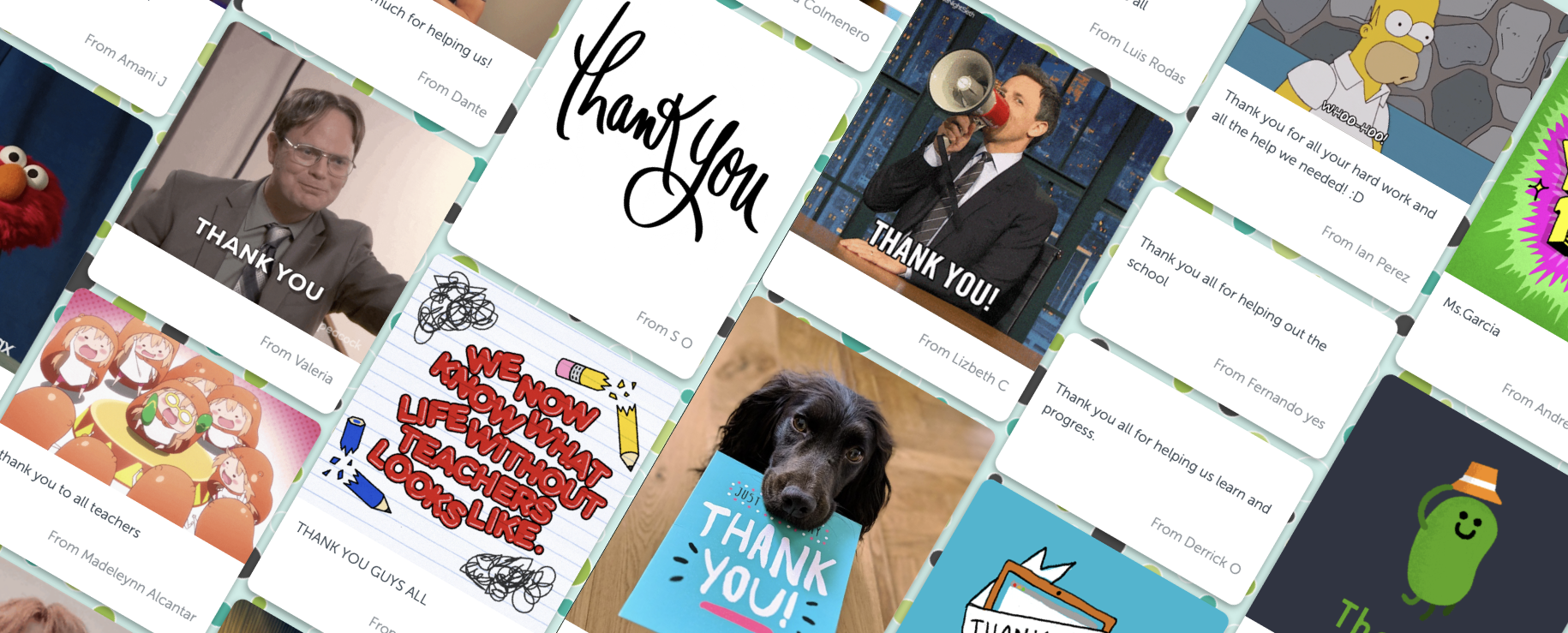Everyone loves a gift—especially in the office. They’re even better when they’re coordinated by the team. Typically organized by HR, employee rewards and engagement programs are essential in creating a positive work environment and boosting employee morale. These rewards not only make employees happier but also lead to increased productivity and job satisfaction.
If you’re looking to overhaul your employee rewards program, we’ve got you covered. We’ll explore a wide range of employee rewards ideas to help you incentivize your team and create a culture of recognition and appreciation. We will also touch upon the benefits of offering employee rewards and the role of employee recognition software in modern workplaces.
What are Employee Rewards?
Employee rewards are the meaningful expressions of gratitude and recognition that organizations offer to their employees to commemorate their hard work, accomplishments, and dedication. These rewards come in various forms, whether they’re tangible gifts, intangible perks, professional development opportunities, wellness benefits, team-building activities, or even special events like those celebrated on Employee Appreciation Day (our favorite). This annual day of recognition offers an opportunity to express gratitude to employees for their hard work throughout the year, often through a variety of rewarding activities and gestures.
Employee rewards are not just mere gestures; incentives can have a huge impact. These rewards fuel employee motivation, strengthen team camaraderie, and build a workplace culture where employees feel valued and appreciated for their contributions. Whether it’s a personalized gift, a wellness stipend, or a team retreat, these recognition ideas are a productive way for companies to invest in and celebrate their most valuable asset—employees.
Employee Rewards Ideas: Intangibles

Commemorative badges
Award personalized badges, pins, or digital certificates to gamify your gifting and recognize employee contributions and accomplishments.
Personalized thank-you notes
Express gratitude by sending personalized handwritten notes or digital messages highlighting specific contributions and impact. Send thank you’s in a Kudoboard to collect messages, gifs, videos, and memes, and more from the group.
Employee spotlight features
Make them feel like the star of the show by highlighting employee success stories, skills, or hobbies in internal newsletters, blogs, or social media posts to showcase their individuality.
Work anniversary celebrations
Acknowledge employees’ work anniversaries with personalized celebrations, heartfelt messages, and funny stories and memes (plus, maybe a commemorative gift).
Flexible workplace perks
Gift flexible scheduling, telecommuting options, or extended lunch breaks to empower employees with better work-life balance.
Skill development opportunities
Provide access to online courses, workshops, or certifications to support employees’ career growth and skill enhancement.
Volunteer time off
Offer employees a day off to volunteer for community service. They can engage in a beach cleanup or help out in their kid’s class, and you can show your company’s commitment to social responsibility.
Mentorship chances
Pair employees with an experienced mentor within the organization to help them grow and share knowledge. This incentive is best if it’s a mentor outside of their typical day-to-day
Recognition ceremonies
Host quarterly or annual public recognition ceremonies to celebrate employee achievements and milestones in the presence of colleagues and leadership.
Wellness coaching
Arrange for wellness coaching sessions, mindfulness workshops, or mental health consultations to promote holistic well-being for employees and reward them for hard work.
Charitable donations
Support employees’ philanthropic efforts by making a charitable donation to support the causes they believe in. Bonus points if you give employees a platform to talk about their charity of choice.
Sabbatical leave opportunities
Provide extended paid leave options for sabbaticals, rejuvenation breaks, or personal growth experiences to support employees’ life phases.
Learning club sponsorships
Provide space and time for employee-initiated learning clubs, study groups, or knowledge-sharing initiatives supporting continuous learning and skill development.
Digital profile building
Invest in professional headshots, LinkedIn profile makeovers, or personal brand development services to boost employees’ professional presence online.
Home-office ergonomics assessment
Hire a service to assess remote employees’ home office setups and offer grants to improve their workspaces based on the findings. You’ll likely invest in lots of chairs.
Employee Rewards Ideas: Development

Reverse mentoring partnerships
Form partnerships between senior leaders and junior employees for reverse mentoring, promoting knowledge sharing and cross-generational insights. It’s a great role reversal that builds bonds and develops both mentor and mentee.
Industry conference speaking opportunities
Sponsor employees to speak at industry conferences, panel discussions, or professional events, showcasing their expertise and thought leadership. This is really only valuable for the extraverts in the group, but introverts could also enjoy the chance.
Project ownership programs
Empower employees with ownership of strategic projects, granting autonomy, responsibility, and the opportunity to drive impactful initiatives.
Leadership coaching
Invest in leadership coaching programs, executive mentoring, or career development initiatives to create future leaders within the organization. Leverage your professional network, the community of your board members, or internal resources to support the coaching program.
Stretch assignments
Provide challenging and growth-oriented projects or roles to expand employees’ capabilities and encourage continuous learning. While some wouldn’t find hard work to be a reward, others view it as a chance to prove themselves.
Cross-functional training
Offer opportunities for employees to cross-train in different departments or roles, giving them new growth and versatility. They’ll also make new friends around the organization in the process.
Learning stipends
Allocate funds for employees to attend conferences, seminars, or educational events relevant to their professional growth and interests. Prioritize virtual conferences to make these events equitable for all.
Mentor circles
Establish peer-led mentor circles or support groups to encourage knowledge sharing, feedback, and career guidance among employees.
Succession planning
Have managers and leadership engage in transparent discussions about employees’ long-term career aspirations and succession planning to align with individual and company goals. They’ll feel seen, and your org will also see less regrettable attrition as a result.
Innovation workshops
Host innovation labs, brainstorming sessions, or idea contests to stimulate creativity and build a culture of continuous improvement.
Certification support
Provide financial support or study leave for employees pursuing professional certifications or accreditations relevant to their roles and career paths. Coursera offers a variety of certificates that boost their resumes and your org’s skillset.
Executive shadowing opportunities
Offer employees the chance to shadow senior leaders and executives, providing insight into leadership roles and strategic decision-making processes.
Professional association sponsorships
Sponsor employees’ memberships to professional associations, industry-specific organizations, or networking groups to expand their professional connections.
Entrepreneurial incubator support
Establish support programs for employees interested in entrepreneurship, providing resources, mentorship, and guidance to explore their aspirations. If they have a side project or aspirations to launch a program, they can benefit from your internal resources.
Leadership book club
Launch a leadership-focused book club, discussing influential leadership literature to promote a culture of continuous learning.
Employee Rewards Ideas: Wellness

Fitness challenges
Launch fitness challenges, step contests, or wellness competitions to promote physical activity and healthy lifestyles among employees.
Mental health resources
Offer access to mental health resources, counseling services, or apps to support employees’ emotional well-being and stress management.
Mindfulness apps
Provide subscriptions to mindfulness or meditation apps, encouraging employees to prioritize mental clarity, focus, and stress reduction. Calm is a great app for meditation and sleep that’ll support their mental health.
Virtual wellness classes
Organize virtual yoga sessions, meditation workshops, or wellness webinars to accommodate remote and hybrid employees’ wellness needs. You can host these with internal resources or bring in local teachers to organize the sessions.
On-site massage days
Arrange on-site massage therapy sessions or chair massages to help employees alleviate stress and muscle tension during work hours. Schedule 15 minute time slots to make sure there’s enough for the entire staff.
Work-life balance workshops
Host seminars, workshops, or panel discussions on work-life balance, time management, and healthy boundaries for employees. There are many online sessions available for remote team members to attend.
Stress-relief activities
Set up stress-relief stations, zen gardens, or relaxation zones within the workplace to provide moments of tranquility and rejuvenation. You could repurpose an existing, underused place in the office or build out a new zone.
Wellness stipends
Allocate stipends for employees to spend on gym memberships, wellness retreats, or holistic wellness services catering to their individual needs. Oftentimes, these can be tax deductible expenses for an employer.
Holistic wellness assessments
Offer comprehensive wellness assessments, covering physical, mental, and emotional well-being to support employees in leading balanced lives.
Outdoor mindfulness retreats
Host mindfulness retreats in nature, incorporating outdoor meditation, forest bathing, and nature-based practices to promote mental clarity and tranquility.
Self-care workshops
Conduct self-care workshops, focusing on stress management, relaxation techniques, and self-compassion practices for employees’ well-being.
Multicultural culinary experiences
Organize multicultural culinary experiences, cooking classes, or global cuisine events, celebrating diversity and culinary exploration. Many online brands offer online experiences catered specifically to your remote employees.
Financial wellness seminars
Present financial wellness seminars, budgeting workshops, or investment planning sessions to foster employees’ financial well-being and confidence.
Sleep health programs
Implement sleep health programs, offering sleep coaching, insomnia management tools, and sleep hygiene resources to support quality restorative sleep.
Workplace wellness challenges
Launch workplace wellness challenges, promoting healthy behaviors, activity competitions, and wellness incentives to encourage sustained well-being practices. You could encourage employees to post their progress on a company contest event board to increase visibility.
Employee Rewards Ideas: Team Building

Escape room challenges
Organize team-based escape room challenges, scavenger hunts, or problem-solving activities to encourage collaboration and teamwork.
Virtual game nights (or afternoons)
Host virtual game sessions, online trivia competitions, or digital team-building activities to connect remote employees and strengthen camaraderie. Incentive employee participation with prizes for the winners.
Cultural exchange events
Celebrate diversity by organizing cultural exchange events, potluck lunches, or international theme days to embrace different traditions. Create a Kudoboard for your DEI initiatives to collect posts and give everyone a fun way to contribute.
Team-based volunteerism
Initiate team-based volunteer projects, community service outings, or charity initiatives to foster camaraderie and social impact.
Cross-functional projects
Assign cross-functional project teams, innovation sprints, or problem-solving hackathons to encourage cross-departmental collaboration. These projects give team members opportunities to work on their passions while also contributing to company growth.
Employee-led initiatives
Empower employees to lead team-building initiatives, collaborative projects, or fun team activities to cultivate shared ownership and engagement.
Collaborative art projects
Engage employees in collaborative art installations, group art workshops, or DIY craft activities to ignite creativity and teamwork.
On-site team games
Arrange on-site games, mini-golf tournaments, or team sports activities to encourage friendly competition and team bonding during work hours.
Leadership retreats
Host leadership development retreats, off-site strategy sessions, or executive team-building activities to enhance leadership alignment and trust.
Team-based innovation labs
Establish team-based innovation labs, hackathons, or design thinking workshops to cultivate collaborative problem-solving and creative ideation.
Collaborative community projects
Engage teams in collaborative community projects, charitable initiatives, or social impact campaigns, fostering teamwork and community involvement.
Internal knowledge exchange forums
Create internal knowledge exchange forums, employee-led learning circles, or expertise-sharing sessions to facilitate cross-functional knowledge exchange.
Mentorship exchange programs
Implement mentorship exchange programs, enabling employees to mentor colleagues across departments, promoting mutual learning and growth.
Company-wide hackathons
Host company-wide hackathons, coding competitions, or innovation challenges to stimulate cross-functional collaboration and innovative thinking.
Cross-departmental buddy programs
Launch cross-departmental buddy programs, pairing employees from different teams to foster collaboration, empathy, and diverse perspectives.
Employee Rewards Ideas: Events

Volunteer outings
Plan group volunteer activities, environmental clean-ups, or charity events to instill a sense of social impact and community involvement among employees.
Team retreats
Organize off-site team-building retreats, workshops, or activities to foster stronger bonds and enhance team collaboration.
Lunch with leadership
Arrange informal lunches or coffee meetings between employees and company leaders to facilitate open communication and relationship building.
Bring Your Pet to Work Day
Create a fun and inclusive environment by allowing employees to bring their pets to the office for a day of furry companionship. Who wouldn’t want to bring their fuzzy friend to the office?
Themed dress-up days
Host themed dress-up days, costume contests, or spirit weeks to infuse fun and creativity into the workplace culture.
Open-mic nights
Invite employees to showcase their talents, such as music performances, poetry readings, or storytelling, in a relaxed and supportive atmosphere.
Recognition breakfasts
Host morning breakfast events to acknowledge employees’ hard work, dedication, and accomplishments in a casual and celebratory setting.
Hobby clubs
Facilitate interest-specific clubs or meetups like book clubs, art workshops, or outdoor adventure groups to foster shared passions and hobbies.
Family picnics
Include employees’ families in company picnics, barbecues, or outdoor events to strengthen familial connections and work-life integration.
Personal branding workshops
Host personal branding workshops, image consultancy sessions, or professional wardrobe makeovers to enhance employees’ self-presentation skills.
Relaxation and spa day
Treat employees to relaxing spa days, massage treatments, or wellness retreats to unwind and recharge in a tranquil environment.
Environmental volunteering
Organize team volunteering for ecological conservation, sustainability projects, or environmental initiatives to promote eco-consciousness and teamwork.
Thought leadership forums
Host industry thought leadership forums, knowledge-sharing events, or speaker series to facilitate intellectual curiosity and professional insights.
Community team-building days
Plan community-oriented team-building activities, local service projects, or neighborhood revitalization events to foster social responsibility and camaraderie.
Employee Reward Ideas: Gifts and Tangible Rewards

Tech gadgets
Consider rewarding employees with the latest tech accessories or gadgets that align with their interests, such as smartwatches, wireless earbuds, or portable chargers.
Relaxation kits
Create customized relaxation kits containing items like aromatherapy candles, essential oils, luxurious bath products, and stress-relief toys to help employees unwind and recharge.
Home office upgrades
Offer ergonomic chairs, standing desks, or noise-canceling headphones to enhance the comfort of remote and office-based employees.
Personalized engraved items
Tokens of appreciation like engraved pens, keychains, or desk accessories add a special touch to employee recognition.
Hobby-related gifts
Get to know your employees’ hobbies and interests, and reward them with relevant items like art supplies, gardening tools, or cooking equipment.
Subscriptions
Gift employees with subscriptions to entertainment platforms, magazines, or wellness services to cater to their personal preferences and interests.
Adventure experiences
Provide employees with experience-based gifts like local kayaking trips, hiking days, or sports activities to encourage adventure and fun.
Customized company-branded SWAG
Personalized gifts such as branded apparel, mugs, or notebooks can make employees feel appreciated and connected to the company.
Food and beverage treats
Treat employees to gourmet gift baskets, coffee subscriptions, or restaurant vouchers to indulge their taste buds.
Personalized keepsakes
Frame employees’ achievements or milestones in customized photo frames, keepsake boxes, or engraved plaques as lasting mementos of recognition.
Customizable digital caricature
Commission custom digital caricatures of employees to add a personalized and light-hearted touch to their workspaces.
Outdoor adventure gear
Reward outdoor enthusiasts with quality hiking gear, camping equipment, or adventure accessories tailored to their interests.
Customized nameplate or desk sign
Provide employees with personalized nameplates or desk signs to add a professional and personalized touch to their workstations.
Book subscriptions
Gift employees with book subscriptions tailored to their reading preferences or professional development interests for continuous learning.
Specialty coffee or tea sets
Delight coffee or tea aficionados with premium brews, exquisite flavors, or artisanal blends to elevate their coffee or tea experiences.
Personalized family portrait
Commission custom family portraits for employees to celebrate their family milestones and cherish memorable moments at work.
Unique plant arrangements
Offer employees aesthetically designed plant arrangements, succulent gardens, or air-purifying plants to enhance their workspace ambiance.
Premium leather accessories
Present employees with high-quality leather accessories such as portfolios, organizers, or wallets for a touch of elegance and practicality.
Customized comic strip or artwork
Commission personalized comic strips or digital artwork to creatively capture employees’ personalities and work achievements.
Tech and gadget subscriptions
Provide subscriptions to tech and gadget services, latest app memberships, or innovative electronic tools aligning with employees’ tech interests.
Benefits of Offering Employee Rewards
Employee rewards programs go beyond mere token gestures of appreciation; they are powerful tools that have a profound impact on the overall success and well-being of an organization. By strategically recognizing and incentivizing employees, businesses can cultivate a culture of appreciation, enhance employee satisfaction, and drive an employee recognition program.
Here are some high-level benefits of offering employee rewards:
Improved employee morale
Employee rewards contribute to a positive work environment, boosting morale and creating a culture of appreciation and recognition.
Increased employee engagement
Recognizing and rewarding employees fosters higher levels of job satisfaction, engagement, and commitment to the organization.
Enhanced performance and productivity
Employees who feel valued and appreciated are more motivated, leading to improved performance and productivity.
Reduced employee turnover
Recognition and rewards contribute to higher levels of job satisfaction, reducing turnover rates and retaining top talent within the organization.
Strengthened company culture
Offering employee rewards builds a strong sense of belonging, collaboration, and teamwork, enhancing the overall company culture.
Positive impact on employee experience
Recognition and rewards significantly contribute to a positive employee experience, leading to happier and more fulfilled employees.
Improved employee satisfaction
Happy and recognized employees are more satisfied with their work and are likely to contribute positively to the organization’s success.
Employee Incentives Bring Engagement
Employee engagement software, like Kudoboard, play a vital role in modern workplaces by facilitating seamless and meaningful employee rewards. By using such platforms, companies can create a culture of gratitude, appreciation, and recognition, leading to increased employee satisfaction, retention, and overall business success.
Remember, a little appreciation goes a long way! Create a culture of recognition with an employee incentive program to cultivate a happier and more engaged team. Choose your favorite employee rewards ideas or schedule them in advance and recognize employees.
Run Rewards with the Right Recognition Platform
Host events, improve employee communications, and give the team a place to feel seen and heard
Frequently Asked Questions about Employee Rewards Ideas:
How do I know which employee reward is best for my business?
Choosing the right employee reward involves understanding your employees’ preferences, interests, and needs. Conduct surveys, gather feedback, and consider individualized rewards to ensure the best fit for your business.
How often should employee rewards be given out?
Employee rewards should be given out consistently to maintain motivation and reinforce positive behaviors. Whether monthly, quarterly, or annually, a structured and regular reward system is essential.
How can I personalize employee rewards?
Personalizing employee rewards involves tailoring them to individual preferences, career goals, and achievements. Consider personalized messages, unique experiences, and customized gifts to make a rewards program more meaningful.
How do I make sure that employee rewards are equitable?
Ensuring equitable employee rewards requires transparent criteria, fair distribution, and inclusive opportunities for all employees. Regularly review and adjust reward processes to address any disparities and ensure fairness.




